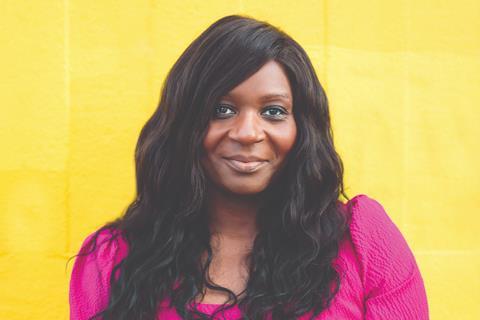God speaks to us and to every situation through the Bible, says Chine McDonald

It’s a new year. And that means millions of Christians will be enthusiastically embarking on new Bible-reading plans. New Year’s resolutions to read the Bible cover-to-cover were a feature of the Christian world in which I grew up. It was a world of memory verses and receiving certificates at the front of church, and it instilled in me a love of and a reverence for this sacred text. I owe a lot of my Christian formation to the Youth Bible; its worn pages and scribbled notes in gel pen a sign of my teenage piety.
In this world, quiet time was the clearest marker of faith. The more you loved Jesus, the longer your quiet time would be; meditating on scripture for 15 minutes – or even better, a whole hour – at 5am made you very impressive! But among the posturing, there was much good to be taken from a culture that had a high view of scripture.
This year will mark 700 years since the birth of Bible translator John Wycliffe, who dedicated his life to demonstrating that the Bible was the highest authority when it came to divine revelation, rather than popes and clerics. As he once said: “Examine all by the light of the Bible; test all in the crucible of the Bible.”
The second half of my Christian walk has resulted in a more complicated relationship with the Bible. The innocent, plain reading of the text was replaced by a more cynical, critical reading of scripture coloured by, ironically, my theological education.
The Bible isn’t just for quiet time
Today, I find much personal comfort, truth and revelation in the pages of the Bible. But when I speak about Christianity publicly, I find it easier to refer to Christian ideas, ethics, tradition and wisdom, as if speaking the actual words of scripture directly may be a turn-off for secular audiences who might view it as a fairy tale, anti-intellectual or simply wrong.
Luke Bretherton writes in his new book A Primer in Christian Ethics: Christ and the struggle to live well (Cambridge University Press): “[The Bible] is the primary archive of how to speak and act in the light of God’s prior action with and for us. It gives us not simply pathways for how we might respond and live but also patterns for how to speak, reason and tell stories together in order to confess who God is and who we are in relation to God.”
In Bretherton’s words, the Bible is both “testimony and confession”. We lose out on scripture’s power to shape us when we become too focused on the inerrancy or divinity of scripture itself, or when we use our conviction about its truth to bash non-believers or assert our dominance.
This year, I’m committing to falling in love with the Bible again; this time with a renewed recognition that the Bible isn’t just for quiet time. It has something to say about the situation humanity finds itself in today. It is through the pages of scripture that we hear God speak, and read how ancient peoples wrestled with God on all that it is to be human: loss, war, the economy, peace, forgiveness, depression, sex, betrayal, redemption, hope. Perhaps meditating on the Bible – both in private and public – can transform us and our world.






































No comments yet